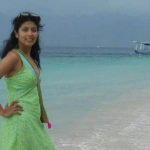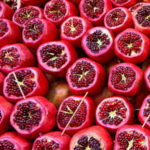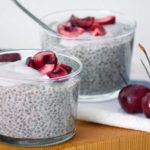 Spirit of Ramadan : Ramadan is the ninth month of the Islamic calendar and is considered the holiest out of the twelve months.
Spirit of Ramadan : Ramadan is the ninth month of the Islamic calendar and is considered the holiest out of the twelve months.
Ramadan characterises the beginning of a month of fasting which a majority of the Bangladeshi population passionately observes. During this time, Iftar is very important to those who fast the entire day. And in the evening, during the time of sunset and time of Maghrib, they break their fast by feasting on some light food known as Iftar.
Old Dhaka charm
The most noticeable change that can be seen in the streets in this period, is either people on a shopping spree or the restaurants bustling with customers and food. Even though the activity within these is pretty low during the days, the eateries somehow make it up through selling just as much food as Iftar and some even go on to stay open for the Sehri too! Somehow Iftar and old Dhaka happens to exist synonymously in Bangladesh.
One way or another, the breaking of fast for some is just not complete without the fried or grilled munchies from old Dhaka. Following places are the reason why it happens… Ramadan is the ninth month of the Islamic calendar and is considered the holiest out of the twelve months by the 1.6 bn Muslims in the world. This spiritual month is observed by fasting from dawn to dusk for the entire month, and participating in special prayers known as the taraweeh after the fast is broken every evening. During this month, Muslims are seen to pray more and ask for forgiveness and blessings from the Almighty.
The holy month is observed in Bangladesh, which has a population of 150 million, among which 89 per cent are Muslim. Even with the hustle-bustle of everyday life, people do not forget that this festival is meant to be a month of charity, and of spiritual and personal growth. Everyone still finds ways to do their bit.
Festive atmosphere and spirit of Ramadan
There is a festive atmosphere before sundown in Chawkbazar market in Dhaka as makeshift stall owners and itinerant vendors sell food items to customers during this month. The market, located in old Dhaka’s Chawkbazar area carries more than a 100-year-old tradition of being Dhaka’s largest and most popular market for items for Iftar. Each afternoon during Ramadan, makeshift shops in the Chawkbazar market sell unique and traditional Iftar items like giant slices of beef, chicken roasts, marinated minced meat and mutton. Various types of seasonal fruits and local drinks are also available here. To dwellers in this old part of the city, it is a family tradition to buy every day at least a few Iftar items from this market. Hundreds of Iftar sellers display a variety of foodstuff, almost all of them a variation of beef, mutton and chicken. Chawkbazar is also well known for fried snacks locally called Beguni (fried eggplant fritters), Piaju (onion lentil fritter), Alur Chop (potato fritters) and other delicacies.
The stretch of Iftari market at Chawkbazar also has a large array of items but nothing unusual from the previous years, and hence the food aficionados believe that this place is more of a traditional venue than a place where chefs experiment or incorporate new items. They strongly believe that to experience Chawkbazar to the fullest, one has to be present there, see and then buy the items themselves. For them, the spirit of Iftar is in breaking the fast with fellow Muslims inside the mosque adjacent to the Iftar market or on the streets in front of the food stands.
It is not always feasible for the those who fast to commute to Chawkbazar. Therefore, the tradition has been brought to new Dhaka. One can now see restaurants sporting signboards and banners sporting messages like Chawkbazar’s traditional Iftari cooked by specialised chefs, and some of the eateries in Gulshan cater to a large number of food lovers who relish the Iftaris prepared in these restaurants.
Bangladeshi Iftary items are very traditional, such as Doi Bora (curd cake), Sola, Muri, Peyaju, fried foods, kebabs, juices, barbecued food, fruits and much more.




















